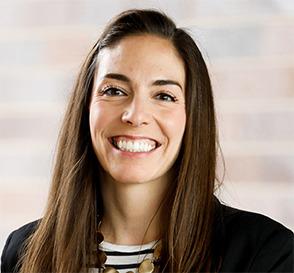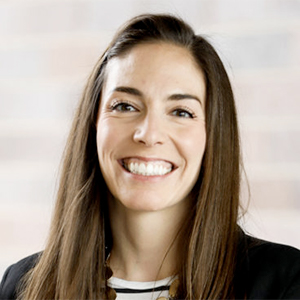Building community
I always knew I wanted to be a teacher. As an undergraduate and graduate student, I tutored and worked in afterschool programs at four inner-city middle and high schools, and I taught weekend workshops and summer camps at the Denver Museum of Nature and Science. However, I also loved research — bench work, peer review and even grant writing. How could I pursue a career path that satisfied both passions?

In 2014, I happily accepted a tenure-track faculty position at Metropolitan State University of Denver, an urban, open-enrollment and Hispanic-serving primarily undergraduate institution. In my mind, this was the place where I would teach, mentor and promote the next generation of scientists. For the first five years, that’s what I did. I developed and taught courses, worked with students in the lab and took them to conferences — mentoring them toward science careers.
But it didn’t work for me. I felt like I was continuously pouring from my cup, without refilling it. I lacked support, and I felt intellectually isolated and simply drained.
So, how could I fill my cup, reinvigorate my career, and perhaps help others do the same? Build community.
I figured the best way for me to find the support I needed was to find others who had overcome these challenges and could share their advice and mentorship, who could critically review my research, share curriculum design, and whom I could help as well.
I started by creating a Women in STEM Faculty Group at MSU Denver where we shared challenges we faced in the tenure and promotion process. During the pandemic, I formed what I called a “peer review” group of former lab mates to share our research and tips for professional development (published in this A-Today article). I also joined the WIBMB Committee to gain advice, mentorship and professional development focused on women in STEM. More recently, I cofounded the RNA@PUI Supergroup, an international community of scientists who are PUI faculty members, or who aim to be, to share teaching and research resources to enhance undergraduate education and training.
Each of these communities has reinvigorated my career in different ways and expanded my network so I do not feel intellectually isolated. I’ve found that the energy I once split among teaching, research and service — the trifecta of academia — is replenished knowing I have support structures from my community of peers.
Career reinvention and reinvigoration: four stories
To mark Women’s History Month, four members of the American Society for Biochemistry and Molecular Biology’s Women in Biochemistry and Molecular Biology Committee, known as the WIBMB, have written personal essays about their career journeys.
Read them all:
Pursuing the call to change by Karlett Parra
Catalyzing change and redefining purpose by Sudha Sharma
Building community by Megan Filbin
The power of sabbaticals by Nicholas Rhind
Enjoy reading ASBMB Today?
Become a member to receive the print edition four times a year and the digital edition monthly.
Learn moreFeatured jobs
from the ASBMB career center
Get the latest from ASBMB Today
Enter your email address, and we’ll send you a weekly email with recent articles, interviews and more.
Latest in Careers
Careers highlights or most popular articles

Sketching, scribbling and scicomm
Graduate student Ari Paiz describes how her love of science and art blend to make her an effective science communicator.

Embrace your neurodivergence and flourish in college
This guide offers practical advice on setting yourself up for success — learn how to leverage campus resources, work with professors and embrace your strengths.

Upcoming opportunities
Apply for the ASBMB Interactive Mentoring Activities for Grantsmanship Enhancement grant writing workshop by April 15.

Quieting the static: Building inclusive STEM classrooms
Christin Monroe, an assistant professor of chemistry at Landmark College, offers practical tips to help educators make their classrooms more accessible to neurodivergent scientists.

Unraveling oncogenesis: What makes cancer tick?
Learn about the ASBMB 2025 symposium on oncogenic hubs: chromatin regulatory and transcriptional complexes in cancer.

Exploring lipid metabolism: A journey through time and innovation
Recent lipid metabolism research has unveiled critical insights into lipid–protein interactions, offering potential therapeutic targets for metabolic and neurodegenerative diseases. Check out the latest in lipid science at the ASBMB annual meeting.

